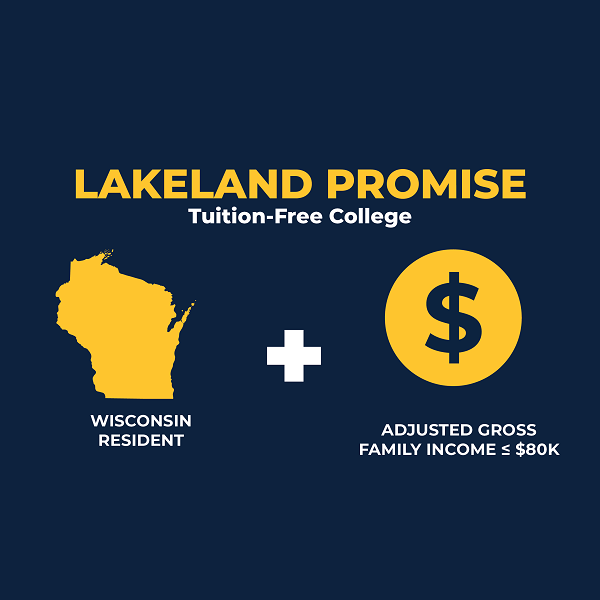At Lakeland University, we believe that financial limitations should not stand in the way of a quality college education. That’s why we’re proud to offer the Lakeland Promise, a program that provides eligible Wisconsin students with 100% tuition and fees coverage through graduation — allowing your family to focus on your future without the burden of financial stress.
The Lakeland Promise covers Lakeland University tuition and fees through graduation for first-year and transfer students.
Lakeland was the first private college in Wisconsin to introduce such a program and offers eligibility to students with the highest Adjusted Gross Family Income (AGI) limit of any similar program in the state.
Questions? Please fill out the form below or contact an admission counselor at admissions@lakeland.edu!
What is the Lakeland Promise?
Lakeland University is committed to providing students that have limited resources 100% tuition and segregated fees through support from Federal, state, and Lakeland funded grant and scholarship programs. Please refer to the eligibility area for all criteria.
Who is eligible?
Students entering the Traditional Program and charged the traditional tuition rate beginning with the fall of 2025-2026 with the following criteria.
How do I apply?
Apply for admission to Lakeland's traditional undergraduate program (lakeland.edu/apply), and submit transcript(s) from your previous institution(s). In addition to applying for admission, submit the Federal Application for Student Aid (FAFSA) and list Lakeland University (school code: 003854) as a receiving institution. You may optionally submit ACT or SAT scores.
Additional Frequently Asked Questions
